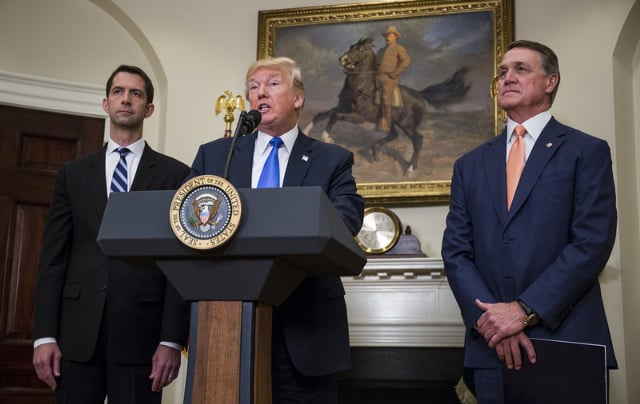
.svg)
President Donald Trump has reinstated a sweeping travel ban affecting 19 countries, blocking or restricting U.S. visa access for millions of people. The policy, which takes effect June 9, could impact U.S. employers that rely on global talent, particularly in healthcare, technology, education, and essential services.
Here’s what businesses need to know — and how to prepare.
We’ve guided employers through every major immigration shift, and this one is no different. Simplify your immigration program with Boundless. Learn more.
What’s in the 2025 Travel Ban?
Under the new order:
- Twelve countries face a full visa ban, including Afghanistan, Iran, Myanmar, Chad, the Republic of Congo, Equatorial Guinea, Eritrea, Haiti, Libya, Somalia, Sudan, and Yemen.
- Seven additional countries face partial restrictions, including Burundi, Cuba, Laos, Sierra Leone, Togo, Turkmenistan, and Venezuela. Individuals from these countries cannot receive permanent immigrant visas or temporary tourist or student visas. Work visas may still be issued in limited cases, but only through waivers granted on a case-by-case basis and likely with shortened validity periods.
There are exceptions for green card holders, certain Special Immigrant Visa (SIV) recipients (such as Afghans who assisted U.S. forces), adoptions, and holders of diplomatic and international organization visas (A, G, NATO classifications). The administration has also ordered consular officers to restrict visa validity wherever possible, limiting long-term travel and employment options.
For more info, Boundless has put together a detailed guide on who’s affected by the new ban.
Industry-Specific Impacts
This policy would create hiring challenges, delay visa processing, and increase compliance burdens for U.S. businesses.
Healthcare
Immigrant healthcare workers from countries like Iran, Afghanistan, and Haiti are essential to the U.S. medical system, especially in underserved and rural areas.
- Iranian doctors frequently enter the U.S. through J-1 visa programs for residencies and fellowships in internal medicine, psychiatry, and cardiology. Many go on to serve in high-need regions facing physician shortages.
- Afghan and Haitian nationals are heavily represented in elder care, home health services, and hospital support roles such as nursing assistants and medical aides. These sectors are already experiencing serious staffing gaps. The travel ban could block new arrivals and prevent status renewals, deepening workforce shortages and straining patient care capacity.
Technology and STEM
U.S. tech companies and research institutions depend heavily on international talent in fields like artificial intelligence, engineering, and cybersecurity.
- Iranian nationals make up a large share of Ph.D. candidates and postdoctoral researchers in computer science, electrical engineering, and data science, many of whom contribute to cutting-edge innovation in both academia and industry.
- The travel ban could block new hires and complicate visa renewals for those on H-1B and F-1 OPT (Optional Practical Training) programs. Employers may face disruptions in onboarding talent, while current employees from affected countries may be unable to adjust their status or travel for work, increasing uncertainty and administrative hurdles.
{{tip-component-1}}
Education and Research
The travel ban threatens to disrupt U.S. universities that rely on faculty, researchers, and graduate students from countries like Iran, Libya, Cuba, and Myanmar.
- Academic departments may face staffing gaps in engineering, medical research, and the physical sciences.
- International enrollment could also decline, straining lab operations and reducing tuition revenue, especially at public universities and research institutions that depend on global talent to sustain advanced programs.
Skilled Trades and Manufacturing
The U.S. manufacturing and skilled trades sectors rely on immigrant workers for roles such as machinists, welders, and technicians.
- Refugee communities from Sudan and the Democratic Republic of the Congo have established themselves in manufacturing states like Michigan, Ohio, and Texas, where they contribute to the industrial workforce.
- Many are sponsored through family-based immigration pathways, which are now blocked.
Agriculture and Essential Services
The ban affects workers in agriculture, hospitality, and cleaning services, especially those with Temporary Protected Status (TPS) or pending visa adjustments.
- In states like Florida, Texas, and New York, Haitian workers fill essential jobs in farming, hospitality, and building maintenance.
- The travel ban could disrupt these pipelines, making it harder for employers to retain current workers or bring in new hires from affected countries, especially in peak seasonal periods when labor shortages are already under strain.
{{cta-component-center-aligned}}
Impact on Hiring and Retention
- Hiring bans: U.S. employers cannot sponsor workers from the 12 fully banned countries.
- Visa limitations: Workers from the 7 partially restricted countries may only qualify for short-term or limited visas.
- Employee risk: Staff who travel abroad may face reentry difficulties, even with valid visas.
- Delays and denials: Expect longer processing times, increased scrutiny, and more visa denials due to narrow eligibility and consular discretion.
Lessons Learned From the 2017 Travel Ban
The 2017 travel ban caught many U.S. employers off guard, and it reshaped how they approach immigration policy, workforce planning, and corporate responsibility. That experience offers clear lessons for how companies can respond now:
- Legal readiness is key. After the 2017 ban, companies like Microsoft and Amazon quickly mobilized legal teams to help employees stuck abroad and adjust internal visa tracking systems. Employers learned the importance of regular immigration audits and maintaining up-to-date records for all foreign-national staff.
- Support your international workforce. Google created a $4 million crisis fund in 2017 to assist affected employees and their families. Other companies held emergency info sessions and offered one-on-one consultations with immigration attorneys. These actions helped ease fear and boost retention.
- Expect — and plan for — disruptions. The 2017 ban left employees from Iran, Syria, and other countries stranded during business trips or personal travel. In response, employers began flagging at-risk roles, tightening travel guidelines, and enabling remote work options to avoid productivity loss.
- Values-based leadership matters. Nearly 100 tech firms, including Apple, Facebook, and Netflix, joined legal briefs challenging the 2017 ban. Starbucks pledged to hire 10,000 refugees. Airbnb offered free housing to travelers barred from entering the U.S. These companies turned a crisis into an opportunity to reinforce their values.
- Reputation is on the line. Uber faced intense backlash in 2017 for its perceived inaction, which led to the #DeleteUber movement. In contrast, firms that acted quickly to defend their people saw boosts in employee trust and public image.
As the new travel ban goes into effect, employers should revisit these playbooks. Strong legal support, proactive planning, and public clarity can help protect workers and minimize disruption, while reinforcing a company’s values in the eyes of both employees and the public.
What Employers Can Do Right Now
- Review your workforce: Identify employees who may be affected based on nationality or visa type. Reevaluate travel plans and visa expiration dates.
- Adjust hiring plans: Prioritize recruitment from countries not on the banned list. Consider remote work options or relocating roles internationally when feasible.
- Seek legal counsel: Work with immigration attorneys to explore alternative visa pathways or strategies to retain global talent.
- Stay compliant: Conduct internal audits of I-9s and visa records. Be prepared for increased government scrutiny and Requests for Evidence (RFEs).
- Communicate with impacted employees: Provide up-to-date information and guidance to employees who may be directly affected by the new ban.
Looking Ahead
The new travel ban is one of the most expansive in U.S. history, with far-reaching consequences for both immigrant communities and the U.S. workforce. Employers that rely on global talent should act quickly to assess risks, plan ahead, and support affected team members.
For ongoing updates and legal guidance, visit Boundless or speak with an immigration expert today.
{{cta-component-center-aligned}}
.png)
.png)
.png)









.svg)
.avif)